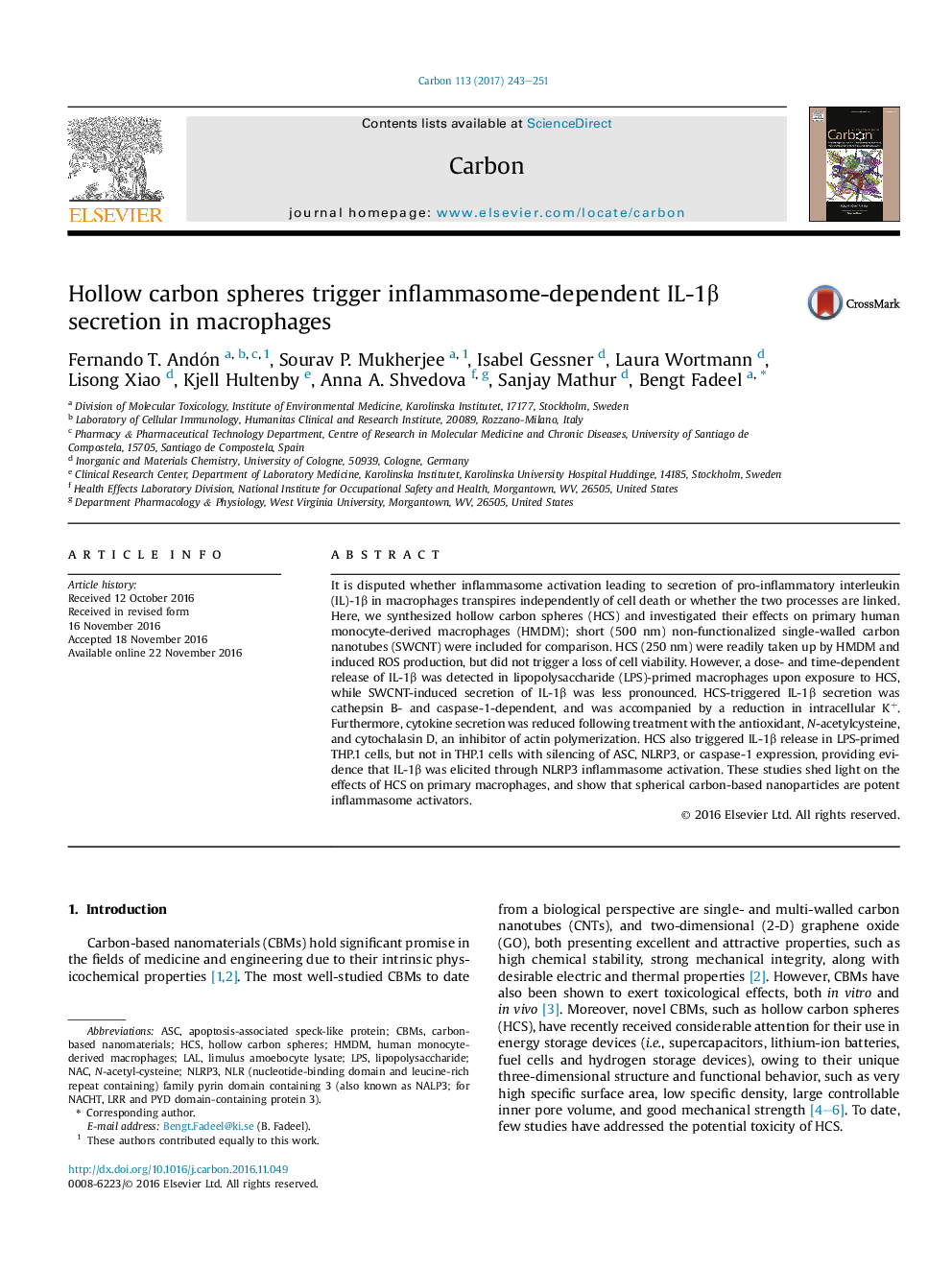| Article ID | Journal | Published Year | Pages | File Type |
|---|---|---|---|---|
| 5432430 | Carbon | 2017 | 9 Pages |
It is disputed whether inflammasome activation leading to secretion of pro-inflammatory interleukin (IL)-1β in macrophages transpires independently of cell death or whether the two processes are linked. Here, we synthesized hollow carbon spheres (HCS) and investigated their effects on primary human monocyte-derived macrophages (HMDM); short (500 nm) non-functionalized single-walled carbon nanotubes (SWCNT) were included for comparison. HCS (250 nm) were readily taken up by HMDM and induced ROS production, but did not trigger a loss of cell viability. However, a dose- and time-dependent release of IL-1β was detected in lipopolysaccharide (LPS)-primed macrophages upon exposure to HCS, while SWCNT-induced secretion of IL-1β was less pronounced. HCS-triggered IL-1β secretion was cathepsin B- and caspase-1-dependent, and was accompanied by a reduction in intracellular K+. Furthermore, cytokine secretion was reduced following treatment with the antioxidant, N-acetylcysteine, and cytochalasin D, an inhibitor of actin polymerization. HCS also triggered IL-1β release in LPS-primed THP.1 cells, but not in THP.1 cells with silencing of ASC, NLRP3, or caspase-1 expression, providing evidence that IL-1β was elicited through NLRP3 inflammasome activation. These studies shed light on the effects of HCS on primary macrophages, and show that spherical carbon-based nanoparticles are potent inflammasome activators.
Graphical abstractDownload high-res image (95KB)Download full-size image
